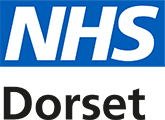Dorset Formulary
The Dorset formulary is a collaborative prescribing guide to enable evidence-based, safe, and cost-effective supply of medications to the population of Dorset. By following formulary recommendations and pathways, we can ensure equitable prescribing across our county in line with national, regional and local guidelines.
The formulary has been developed in partnership with specialist health professionals from primary and secondary care and is reviewed on a regular basis.
A wide range of resources are available on the formulary such as the relevant NICE Guidance, NICE TA, Commissioning Statements and local prescribing guidelines.
Please access the above guidance documents for how to use the formulary, including the traffic light categorisation applied to each individual drug. For any support in using the Dorset Formulary, please contact the team on medicine.question@nhsdorset.nhs.uk
It is acknowledged that the formulary is a guide and there may be times when it is clinically appropriate to prescribe off formulary. However, these instances should be the exception and reasons for prescribing non-formulary medication must be detailed in the patient’s medical notes.
If a provider outside of the county is requesting the ongoing prescribing of an item that area’s formulary may need to be checked to ensure a consistent approach for patients. If help is required to support this please contact medicine.question@nhsdorset.nhs.uk
Dorset formulary on SystmOne
The Dorset Formulary has been created as a formulary profile in SystmOne for use in primary care. The aim of this profile is to support formulary compliance. Clinical responsibility for all items prescribed lies with the prescriber.
For details on how to use the Dorset Formulary profile in SystmOne, please contact medicine.question@nhsdorset.nhs.uk
Dorset Integrated Medicines Optimisation Committee (IMOC)
Drug decision making in Dorset is led by the Integrated Medicines Committee (IMOC) as part of their responsibilities. IMOC is made up of healthcare professionals across the Dorset system and works to ensure the content of the Dorset Formulary is appropriately scrutinised and reflects the needs of the Dorset population. Meeting summaries are published on the front page of the Dorset Formulary.
Working groups and clinical networks are made up of specialised healthcare professionals who are experts in their clinical area. Where available, working groups align with local steering groups and clinical networks ensuring a joined-up approach to drug decision making.
Recommendations from these groups are submitted to IMOC for consideration and approval.
Formulary Applications
The following reasons are examples where a formulary proposal may be required:
- A request to add a new drug to the formulary
- Adding a new indication to an existing formulary drug
- A new formulation for an existing formulary drug
- To change the traffic light status of an existing drug
Please contact your formulary pharmacist or the medicine optimisation team at NHS Dorset if you wish to discuss or need support with a formulary proposal at medicine.question@nhsdorset.nhs.uk.
The formulary proposal should then be submitted to medicine.question@nhsdorset.nhs.uk, or directly to the relevant working group via the representing pharmacist from your organisation. Please see “Pathway for taking a drug through the formulary process” for more detailed information.
The medicine evaluation checklist is then completed at the relevant working group before submission to DMAG.
Need help? Contact us via medicine.question@nhsdorset.nhs.uk for any support.
NB: New products will by default be non-formulary initially and prescribers are thus asked to refrain from prescribing new drugs and prescribable devices until they have been assessed and approved for addition to the formulary by the Dorset Medicines Advisory Group.


